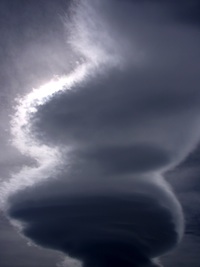Once again, a natural disaster has brought the attention of many to the possible need for disaster insurance. Hurricane Irene might not have been as fierce as many expected, but there will still probably be plenty of insurance claims from floods and other damage. Whenever we hear of a hurricane, an earthquake, tornadoes or some other disaster, it often prompts a double-check of the homeowners policy to see if you would be covered in a similar disaster were to befall you. Do you need disaster insurance? See the different types available and if you need it.
Types of Disaster Coverage
There are several different types of disaster coverage. Your regular homeowners policy probably covers water damage from a burst pipe, or even sewer backup, as well as damage from fire and/or lightning. However, major disasters are not usually covered in your homeowners policy. Here are some of the disasters that could cost you if you don’t have insurance coverage:
- Hurricane: Interestingly, you can actually get hurricane coverage that is separate from flood insurance. The same is true of tsunami damage, which might actually be considered different from hurricane coverage.
- Flood: This includes flooding from groundwater, as well as from rising rivers and marshlands.
- Tornado: You might need separate insurance to protect you from damages caused by tornado and other high wind damage.
- Earthquake: Most homeowners policies don’t cover earthquakes. Other earth movements, including mudslides, usually aren’t covered, either.
Do You Need a Disaster Insurance Policy?

Whether or not a disaster policy works for you depends on where you are located, and how much coverage costs. My home was invaded by groundwater as the result of a freak December thaw a few days before Christmas 2010. We didn’t have flood insurance, so we had to pay the $2,300 cost of cleanup and sump-pump installation on our own. But, it was still less than paying premiums would have been — and our deductible would have been more than half the total. Since we installed the pump, and we’ve never had flooding before (or since), we’re still relying on the emergency fund for future flooding possibilities.
Consider your location. Is your area prone to disasters? Which ones? People living in areas that are likely to see earthquakes might want coverage, since a big quake can cause serious damage. Many people living in Tornado Alley in the Midwest choose to get tornado insurance in the event the home is seriously damaged by high winds.
However, even if you don’t live in an area that generally doesn’t see disasters, you never know what could happen. While I’m not likely to see a hurricane, the occasional tornado turns up, and I live along a fault (although one that hasn’t produced anything worrying for some time). As we saw along the East Coast, though, it is possible for something unexpected to suddenly strike. The good news is that disaster coverage in an area that doesn’t normally have disasters is usually quite affordable.
Get an insurance quote with Liberty Mutual.
Before you get disaster insurance, weigh your position. You want to protect your assets, but you also don’t want to throw your money away on unnecessary coverage. Consider the size of your emergency fund, what your state might require for your area, and the likelihood of a disaster. Then, decide what kind of coverage you might need.
Thanks for a great post. People often forget that events like a flood are probably not covered under their general homeowner’s policy. I’ve seen a couple of friends burned by this in the past!
You’re quite welcome Andrew. And you are right, I think many don’t realize what their coverage really is until they need to make a claim and then it may be too late.
Thanks for the reminder!
You’re welcome Jenna.
Living in southern California, earthquake insurance is a given! Certain areas of southern California is prone to floods and you would need flood insurance.
I can’t imagine living where I would need earthquake insurance but I’m sure it’s not as bad as it sounds. Hope you never have to use it!
Dr Jaan Sidorov presents this week’s collection of risky, often scary posts, and your post is in it:
http://diseasemanagementcareblog.blogspot.com/2011/09/cavalcade-of-risk-terrorism-cyberwar.html
Please tell your readers.
And a friendly reminder to newbies and regulars alike that, while it’s not mandatory to give a link back, it’s the way that carnivals work best. If your submitted post has been included in the Cav, please remember to post about it on your blog because it helps us all.
Thanks!